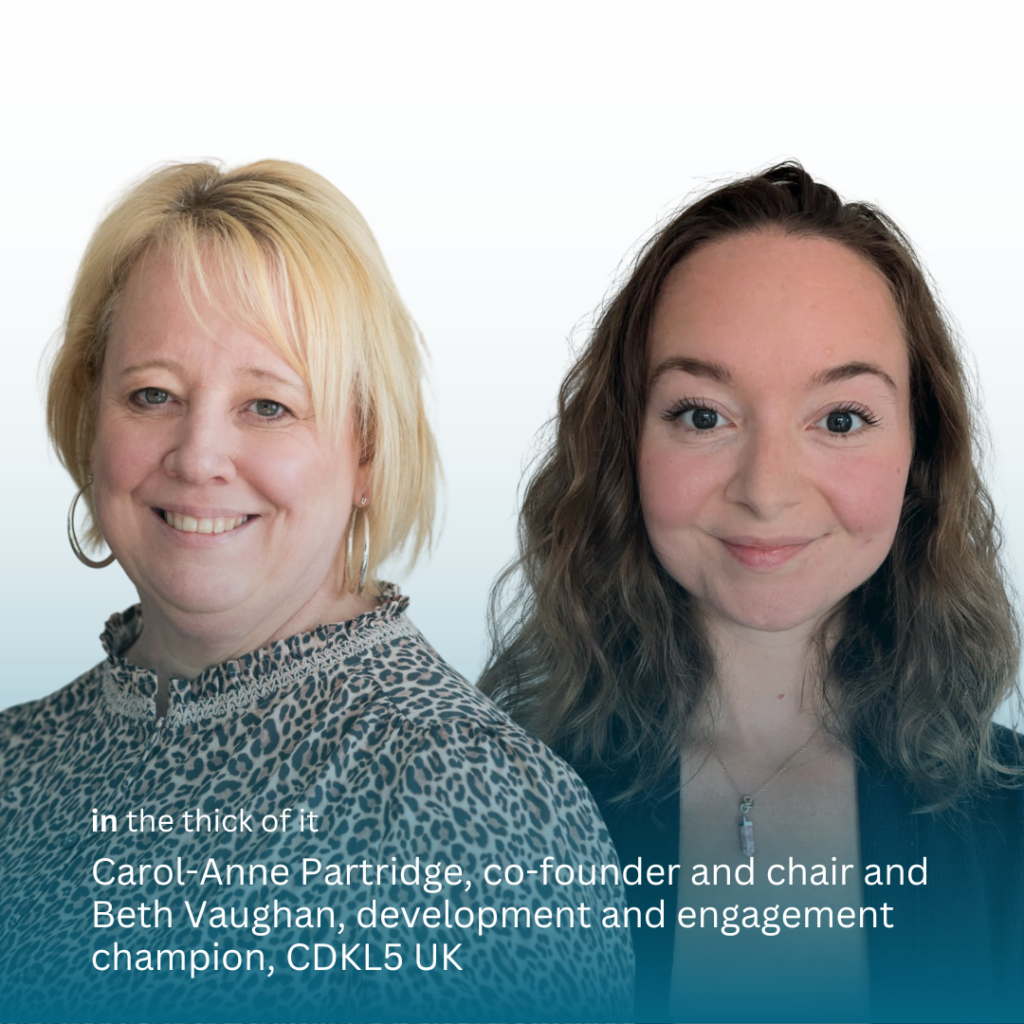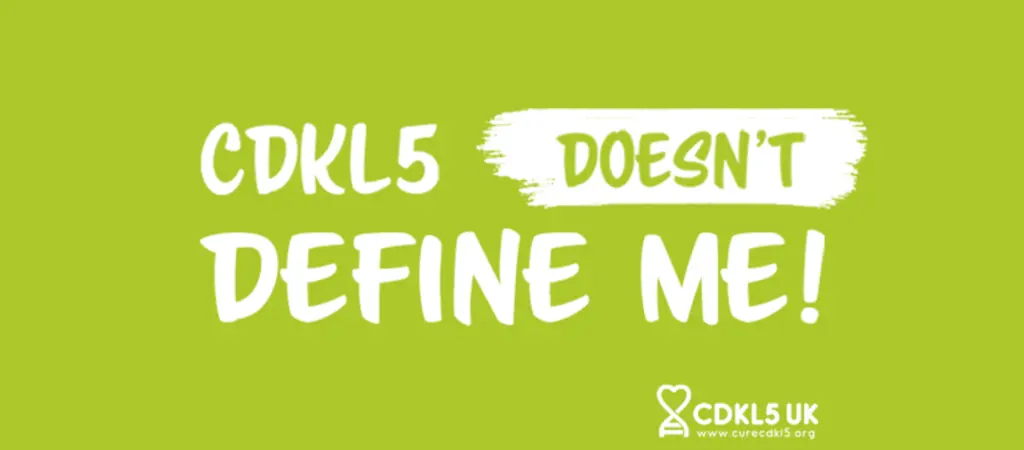Putting you in the heart of the rare community – CDKL5 UK
Estimated reading time: 6 minutes
Patient advocacy groups deliver their top three unmet needs and main asks of industry to best serve their rare community. This week’s insights come from Carol-Anne Partridge, co-founder and chair, and Beth Vaughan, development and engagement champion, from CDKL5 UK


CDKL5 UK is a small charity dedicated to supporting individuals and families with a diagnosis of CDKL5 Deficiency Disorder (CDD).
We do this by:
- sharing relevant and up to date information about the condition
- organising face-to-face family days, and online events
- delivering training for health and social care professionals
- supporting patient participation in the latest clinical trials
- providing a platform to empower individuals and families to be involved in the design and implementation of research projects, using their lived experience to help others on a similar journey
Our mission is to provide help and support to individuals and families affected by CDD. Our vision is a world in which CDD and its effects are overcome by way of effective treatments and ultimately, a cure.
CDD is a rare X-linked, complex genetic condition, which can result in early onset, difficult to control seizures, and a delay in development and normal brain function, among other symptoms.
CDD has a prevalence of 1:42,000-1:60,000 people in the UK. There are many children and adults living with CDD worldwide.
Every individual with CDD is different, and the severity of the condition ranges from person to person, however the majority of individuals will experience at least some symptoms or abnormalities. Some people experience severe symptoms, whilst others can be relatively mildly affected. Some people do not walk or talk, but others have learned to walk and communicate. Early therapeutic intervention is essential.
What are your top three unmet needs or main asks of industry to best serve your rare ecosystem?

Early onset epilepsy is usually one of the first symptoms of CDD. Infantile seizures can begin within the first three months of life, but can appear as early as the first week after birth. Most children and adults with CDD experience daily seizures.
Although there are a number of anti-seizure medications (ASMs) currently available–which reduce the amount of and severity of seizures–these treatments can slowly become less effective over time. Many people with CDD also experience different types of seizures and many experience ‘refractory’ epilepsy: seizures that do not respond to any of the treatments currently available. The severity of refractory epilepsy means that people diagnosed with CDD cycle through lots of different types of ASMs to try and control their seizures, with little success.
There are currently no approved ASMs for CDD, and currently no ‘disease-modifying’ therapies for CDD.

Effective treatments for the many co-morbidities associated with the condition, including gastrointestinal, sleep, musculoskeletal problems and mental health
As well as epilepsy and delay in brain development, people with a diagnosis of CDD can experience a range of other symptoms which can cause considerable discomfort to affected people and emotional strain on family members, having a huge impact on the quality of life of the entire family unit.
These symptoms can include limited or no speech, sensitivity to touch, poor or no eye contact, gastrointestinal reflux and other problems, constipation, breathing irregularities, scoliosis, teeth grinding, poor muscle tone, some autistic-like tendencies, cortical blindness, motor disorders caused by damage to the brain, eating and drinking challenges and poor sleep.
CDD and its co-morbidities can have a profound impact on the quality of life of individuals, families and carers, especially on their mental and emotional health and wellbeing. In 2024, we carried out a CDKL5 Family Caregiver Mental Health Survey to understand the challenges faced by families, shedding light on the impact of CDD on relationships and mental health.
Families shared their personal experiences with us, saying:
“Epilepsy and GI journey are the hardest.”
“Managing the care, therapies, medical emergencies and advocating for services for my child while balancing the needs of their siblings is overwhelming and exhausting. I feel like I am drowning and there is no break.”
“I am a prisoner in my own home. We are unable to do anything or go anywhere. Behaviour is a massive issue for us.”
“It’s hard for an outsider to understand how hard it sometimes is, because I have to keep on going with a big smile and that’s what others see.”

The CDKL5 Centre of Excellence, as recognised by NHS England, is based at Bristol Royal Hospital for Children, specifically for children and adults with CDD in the UK. It is led by consultant paediatric neurologist, Dr Sam Amin. The initiative helps support the care of people diagnosed with CDD, in partnership with their local medical team, by providing specialist clinical input as well as focused pastoral care and support.
The CDKL5 Centre of Excellence is the only service in the UK specifically for people diagnosed with CDD. Many families comment that there is a lack of awareness of CDD within the medical community, and part of our work here at CDKL5 UK is to change that. According to a study published by Dr Amin (et al) in 2024 called Providing quality care for people with CDKL5 deficiency disorder: A European expert panel opinion on the patient journey; access to care from different disciplines is essential, and it is recommended that multidisciplinary care should be individualised based on the person with CDD’s co-morbidities and age.
A multidisciplinary care team should consist of several practitioners, including neurologists, dieticians, physiotherapists, gastroenterologists, and orthopaedic specialists. Unfortunately, such coordination of care is often limited by time and available resources.
The severity of refractory epilepsy, the range of associated symptoms and the complexity of management means that the need for the funding of specialised centres so that local teams can consult with experts, preferably with a broad knowledge of drug management and drug interactions, is increasingly urgent. Access to specialised centres is essential for long-term care, support and improved quality of life for affected individuals, their families and carers.

Connect with Carol-Anne Partridge
Connect with Beth Vaughan
in the thick of it puts you in the heart of the RARE communities you serve.
To connect with more RARE communities click below.

